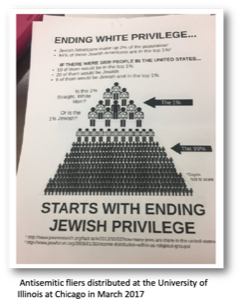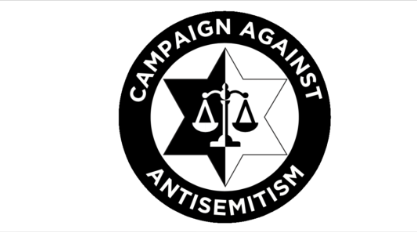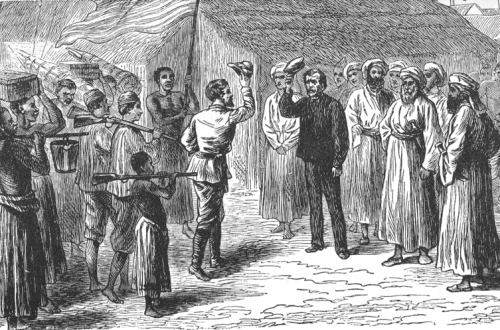Okay, I’ll admit that I’m late to the party, but I’ve only recently discovered that in the US, it has become really fashionable to designate Jews as “white” and to castigate them for enjoying “white privilege” or even accuse them of “upholding white supremacy.” While I got immediately furious for reasons I’ll explain, it seems that if you are an American Jew who wants to be counted as broadly sympathetic to progressive causes, you better uncritically embrace your “whiteness” and ruefully ponder the attending privilege and the ways in which you might contribute to white supremacy.
Obviously enough, this discourse developed in the very specific context of American debates about race and inequality, and it reflects supposedly progressive ideas about intersectionality and identity politics according to which being “white” is something deeply shameful akin to the worst sins condemned by religions. As Andrew Sullivan recently put it in an interesting column on “America’s New Religions,” “the young adherents of the Great Awokening exhibit the zeal of the Great Awakening.”
So questioning woke dogma and rituals will inevitably incur the wrath of the faithful – which hasn’t deterred me from voicing my objections to the in my view rather pernicious designation of Jews as “white.” Obviously enough, “white” isn’t just meant to describe the tone of one’s skin, but it is also meant to identify an individual as part of a racist and exploitative system that keeps all POC (people of color) down.
It is of course true that in 21st century America, most Jews live relatively comfortable lives and face little discrimination, which is reflected in a Pew survey from 2013 that describes American Jews as “a comparatively well-educated, high-income group.” But it wasn’t all that long ago that American Jews were not “white” enough to dare speaking out forcefully for taking in those “white” European Jews trying to flee very white murderous Nazis intent on achieving their “final solution” to the “Jewish problem.” Yet at very same time that American Jews felt too powerless to campaign to help desperate European Jews, polls showed “that many Americans believed that Jews were too powerful in the United States.”
The idea that Jews are too powerful, and therefore a threat that has to be fought, is of course an old antisemitic canard – and it is precisely because fantasies about Jewish power have cost so many Jewish lives over the centuries that it is preposterous to suddenly designate Jews as “white,” thus magically transforming them into accomplices and beneficiaries of power structures that, until quite recently, cast Jews as despised and dangerous outsiders. Designating Jews as “white” also seems to suggest that as soon as there is a generation of Jews lucky enough not to share the experience of endless discrimination and persecution of previous generations, Jews are expected to feel guilty and share the blame for whatever discrimination and racism other groups continue to suffer. At the same time, the vigorous Jewish support for the Civil Rights movement and liberal/progressive politics can apparently be ignored.
Another obvious problem with designating Jews as “white” is the fact that those really obsessed with “whiteness” violently disagree – as sadly demonstrated again just some two months ago, when a white supremacist killed 11 people and wounded several others at a Pittsburgh synagogue. That’s why the African-American activist and researcher Eric Ward was right to argue that “the truth is that Jews are not ‘whites’ in the United States. If they were, they would not receive death threats, their houses of worship would not be targeted, their burial sites would not be desecrated.”
Ward also pointed out that the left’s insistence on designating Jews as “white” leads to a downgrading of antisemitism as a comparatively minor form of racism that after all targets a supposedly privileged group. Yet, Ward concluded that Jews have only “temporary access” to “white privilege,” and he as well as others have noted that it is often conditional on concealing their Jewishness.
One good example of how happy Jew-haters are to seize on this debate was provided by an incident at the University of Illinois at Chicago (UIC) in March 2017, when fliers were distributed on campus announcing in big bold letters: “Ending White Privilege Starts With Ending Jewish Privilege.”

The validity of the claim that Jews enjoy “white privilege” is also undermined by the fact that according to FBI data on hate crimes, Jews have been for decades the most frequently targeted group per capita; e.g. in 2017, “Jews accounted for 60% of hate crimes motivated by religion of target, despite being just 2% of population.” Figures for 2018 indicate that nothing has changed for the better.
So whenever I get involved in one of those endless Twitter debates about the question if American Jews are really “white” or just “white passing” and how much “white privilege” they enjoy and whether they can be both upholding “white supremacy” and be targeted by it, I think to myself that Eric Ward was definitely right when he expressed impatience with “contemporary movement versions of identity politics … that are navel gazing and focused on picking the lint from our own bellybuttons.” It seems to me that the current obsession with intersectionality and identity politics results all too often in a toxic divisiveness that contributes nothing to building a better society.
Yet another problematic aspect of the counter-productive debate about the “whiteness” of American Jews is that it gets inevitably applied to Israeli Jews. So it’s a fairly good bet to expect people who like to hold forth about “white” American Jews to move effortlessly to denouncing Israel as an evil colonial enterprise led by Nazis who insist on “Jewish supremacy.” The staunchly left-wing Israeli historian and writer Gershom Gorenberg captured it very well:
When it’s good to be white, we’re not.
When they it’s bad to be white, we are.
When it’s good to be European, we’re Levantines.
When Europeans are colonialists, we’re colonialists.
When they hate immigration, we brought immigrants.
When they hate capitalists, we’re capitalists.— Gershom Gorenberg (@GershomG) December 20, 2018
This is a guest post by Dr. Petra Marquardt-Bigman




